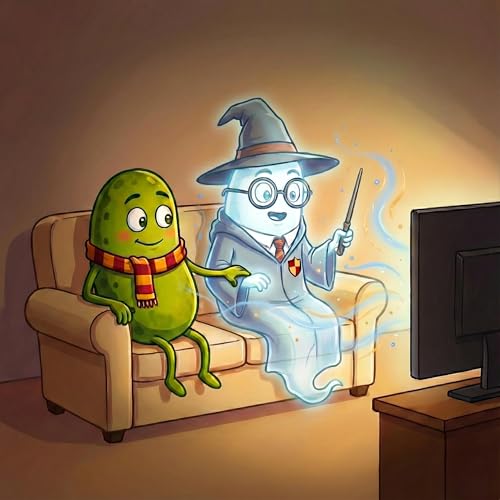Épisodes
-
 15 min
15 minImpossible d'ajouter des articles
Désolé, nous ne sommes pas en mesure d'ajouter l'article car votre panier est déjà plein.Veuillez réessayer plus tardVeuillez réessayer plus tardÉchec de l’élimination de la liste d'envies.
Veuillez réessayer plus tardImpossible de suivre le podcast
Impossible de ne plus suivre le podcast
-
 10 min
10 minImpossible d'ajouter des articles
Désolé, nous ne sommes pas en mesure d'ajouter l'article car votre panier est déjà plein.Veuillez réessayer plus tardVeuillez réessayer plus tardÉchec de l’élimination de la liste d'envies.
Veuillez réessayer plus tardImpossible de suivre le podcast
Impossible de ne plus suivre le podcast
-
 15 min
15 minImpossible d'ajouter des articles
Désolé, nous ne sommes pas en mesure d'ajouter l'article car votre panier est déjà plein.Veuillez réessayer plus tardVeuillez réessayer plus tardÉchec de l’élimination de la liste d'envies.
Veuillez réessayer plus tardImpossible de suivre le podcast
Impossible de ne plus suivre le podcast
-
 14 min
14 minImpossible d'ajouter des articles
Désolé, nous ne sommes pas en mesure d'ajouter l'article car votre panier est déjà plein.Veuillez réessayer plus tardVeuillez réessayer plus tardÉchec de l’élimination de la liste d'envies.
Veuillez réessayer plus tardImpossible de suivre le podcast
Impossible de ne plus suivre le podcast
-
 Dec 23 202514 min
Dec 23 202514 minImpossible d'ajouter des articles
Désolé, nous ne sommes pas en mesure d'ajouter l'article car votre panier est déjà plein.Veuillez réessayer plus tardVeuillez réessayer plus tardÉchec de l’élimination de la liste d'envies.
Veuillez réessayer plus tardImpossible de suivre le podcast
Impossible de ne plus suivre le podcast
-
 Dec 23 202513 min
Dec 23 202513 minImpossible d'ajouter des articles
Désolé, nous ne sommes pas en mesure d'ajouter l'article car votre panier est déjà plein.Veuillez réessayer plus tardVeuillez réessayer plus tardÉchec de l’élimination de la liste d'envies.
Veuillez réessayer plus tardImpossible de suivre le podcast
Impossible de ne plus suivre le podcast
-
 16 min
16 minImpossible d'ajouter des articles
Désolé, nous ne sommes pas en mesure d'ajouter l'article car votre panier est déjà plein.Veuillez réessayer plus tardVeuillez réessayer plus tardÉchec de l’élimination de la liste d'envies.
Veuillez réessayer plus tardImpossible de suivre le podcast
Impossible de ne plus suivre le podcast
-
 13 min
13 minImpossible d'ajouter des articles
Désolé, nous ne sommes pas en mesure d'ajouter l'article car votre panier est déjà plein.Veuillez réessayer plus tardVeuillez réessayer plus tardÉchec de l’élimination de la liste d'envies.
Veuillez réessayer plus tardImpossible de suivre le podcast
Impossible de ne plus suivre le podcast

